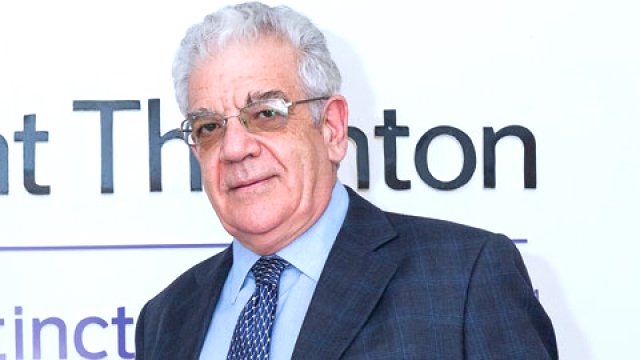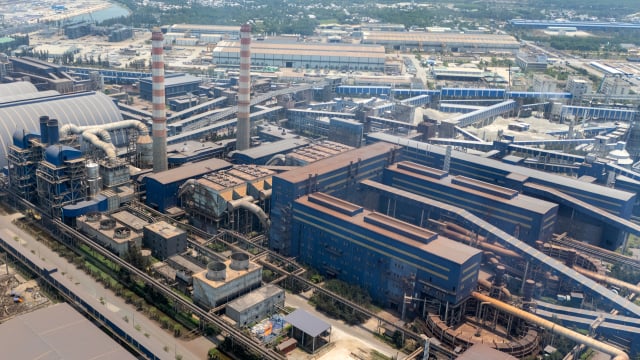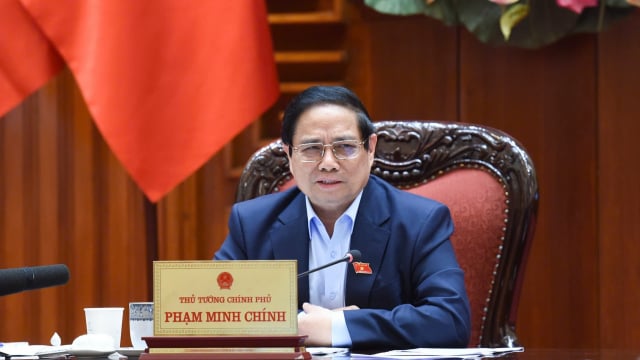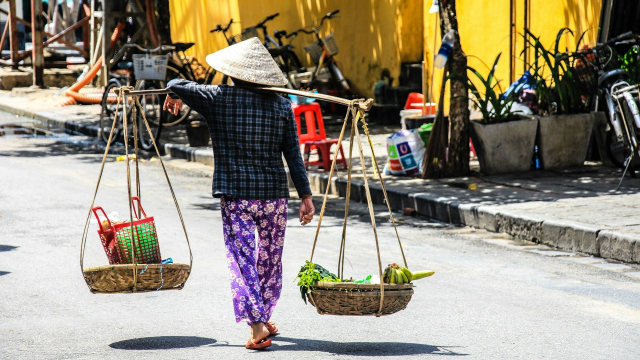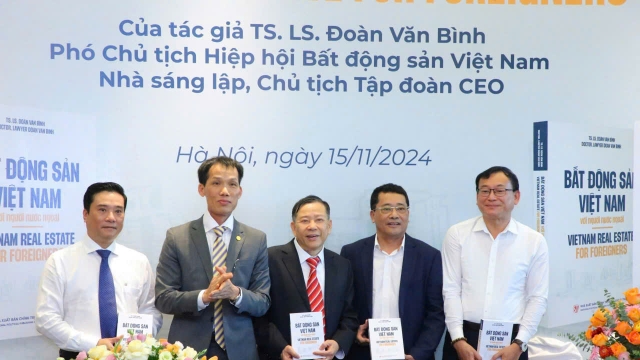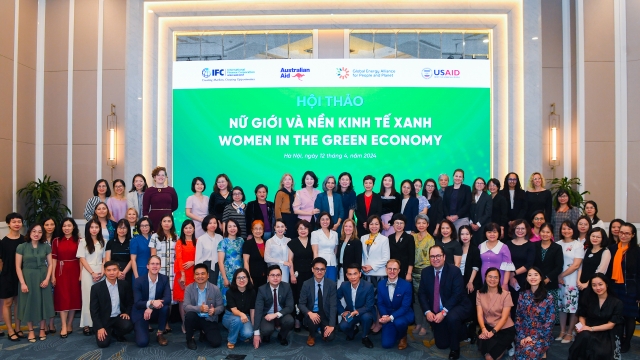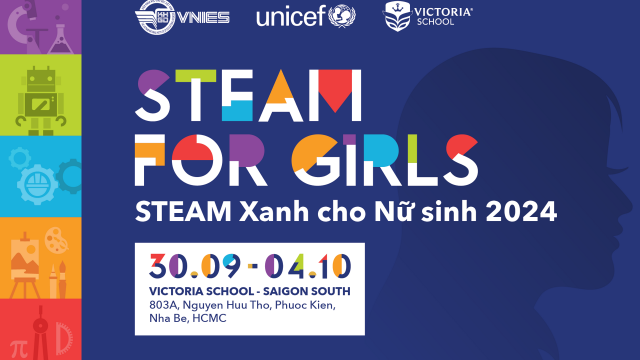National Focus
Visa: The bottleneck for Vietnam tourism’s objectives
If the obstacles in visa-related issue are not removed, Vietnam’s objective to develop its tourism into the key economic sector by 2020 could not be realized, according to Vietstar Airlines Deputy General Director Luong Hoai Nam.

In the Vietnam International Tourism Market 2018 held this March, nearly 1,000 enterprises and institutions got the chance to gather and promote tourism products.
However, the question concerning whether the visa exemptions for five European countries, namely England, France, Germany, Italy and Spain would be continued raised in this event could not be answered by anyone.
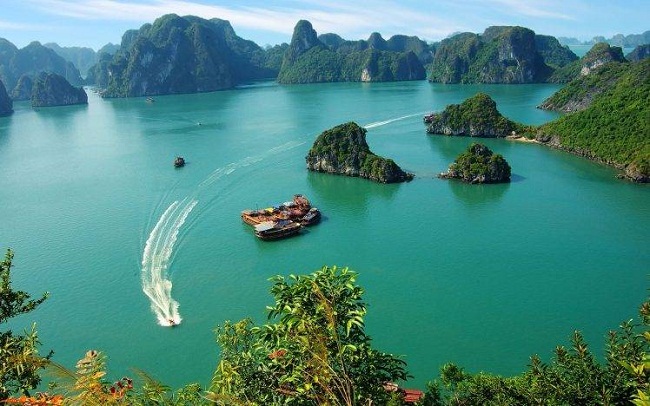
Vietnam’s tourism industry has a lot of development potential. For the past two years, Vietnam tourism has experienced impressive growth rate, with 2017 welcoming 13 million international visitors, an increase of more than 29 per cent compared to the previous year.
According to the World Economic Forum (WEF), Vietnam tourism has huge advantages in natural and cultural resources as well as the competitive capability in terms of price.
However, it is unlikely that Vietnam will be able to continue this strong momentum with the great potential if the Government does not renew visa exemptions for the five European nations well in advance of their expiration in this June.
Representatives of the Tourism Advisory Board (TAB), a private consortium of stakeholders from travel sector, affirmed that if the visa exemptions are renewed, the number of inbound visitors in Vietnam would increase by 10,1 per cent, which is more impressive than other countries in the region thanks to its huge natural resources.
According to CEO of Thien Minh Group Tran Trong Kien, without visa exemption, the number of international visitors, especially from the five European countries, would be reduced significantly, especially in this summer vacation.
“Vietnam tourism may suffer a loss of hundreds of million US dollars and hundreds of thousand jobs in the short-term due to the sharp decrease in the number of visitors. It would take years for the sector to be recovered,” said Kien.
In addition, Luong Hoai Nam said that if the bottleneck in visa-related issue is not removed, Vietnam’s objective to develop its tourism into the key economic sector by 2020 could not be realized.
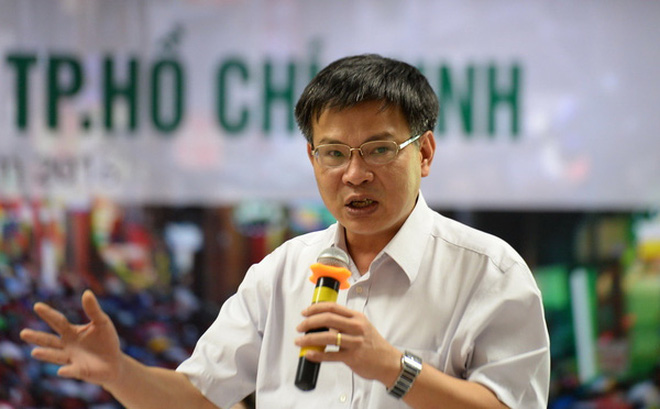
Nam stated that many investors have recognized the potential of the tourism sector and started planning to invest in projects.
Therefore, if the government does not consider the visa-related issue carefully, Vietnam's macro-economy, the expectation and the faith of visitors and investors in Vietnam’s tourism sector may be strongly impacted.
Despite impressive development in recent years, Vietnam is still in the top six of ASEAN in terms of visitor exports.
In most of ASEAN nations, each of the visitors contributes over $1,000 on average, with the figure for Thailand reaching about $1,500. Whereas, the average spending of each international tourist in Vietnam is just about $800 - $900.
According to TAB, if Vietnam wants to be ranked in the top three, it must surpass Singapore in visitor exports.
Rebalance the market pie to increase tourism exports
Currently, the Northeast Asian markets, including South Korea and China, is the largest market with over 50 per cent of market share.
However, the shares of spending and contribution of these markets remain low in Vietnam. Meanwhile, despite the lower number of visitors, European market contributes more to Vietnam tourism in terms of consumer spending than other regions.
On average, each Chinese visitor just spends $600 and under 10 days in Vietnam while visitors from Europe stay on average 15 days or more and average spend per visitor ranges from $1,400 – $1,600.
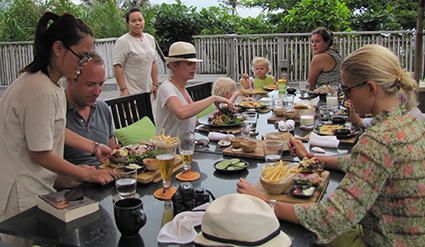
According to TAB, if Vietnam wants to reach the goal of $1,080/pax in visitor exports, it must focus more on high-spending customers with two proposals.
The first recommendation is to renew visa exemption for the five European nations well in advance of their expiration on this June 30, extend the visa exemptions to 30 days for 12 countries, allow visitors to return within 30 days and pass the exemptions for five years instead of being subject to renewal every year.
Nam said that if this recommendation is approved, Vietnam could become the regional hub of aviation when European visitors just need to buy a return market of Vietnam Airlines instead of buying tickets of two different brands.
According to the Travel and Tourism Competitiveness Index 2017 Edition by the World Economic Forum, Vietnam ranked 67th out of 136 countries with three lowest indexes being environmental sustainability, visa application requirements, and tourism service infrastructure.
In Vietnam Private Sector Forum 2017, visa policy was identified as one of the three bottlenecks of Vietnam's tourism sector.
TAB highlights that the improvement in visa-related issue can be implemented easily as it does not require such large amount of time and financial resources as other bottlenecks.
Vietnam is currently the country having the largest amount of visa-related obstacles in the region. The length of exempted stay in most countries ranges from 30 to 90 days. Whereas in Vietnam, only people from Chile, whose number of visitors to Vietnam is low, enjoy 90 days of visa exemption.
Vietnam mostly offers 15 days in length of exempted stay while they tend to stay in Vietnam longer than that, which proves that tourists could not make the most of visa exemption efficiency.
In the second recommendation, TAB said that Vietnam should increase the number of visa exempt countries and in particular to add Canada, Australia, New Zealand, Switzerland, Netherlands, and Belgium; and add four countries and territories including Taiwan, Hong Kong, Netherlands and Belgium to the list of countries eligible for electronic visas.
This organization said that the e-visas need to be promoted with higher accessing speed and a shorter domain name.
TAB leaders stated that visa exemptions are essential for healthy tourism growth, and could not be replaced by e-visas or other types of visas which require travelers to apply beforehand.
Besides, Vietnam should apply the 48 or 72-hour visa-free transit policy for the those flying to Europe and vice versa, which would benefit both tourism and aviation.
Visa exemptions help to increase the national budget
According to TAB, visa exemptions would help both government and enterprises to gain more money.
Last year, 370 thousand Australian visitors came to Vietnam. This number could have been increased by 37 thousand people if there had been the visa exemption policy. Despite losing the visa application fee of $9 million from these 370 thousand people, Vietnam could have gained $55 million more if each of them spends $1,474.
Normally, each enterprise must pay a tax rate of 20 per cent, which is equal to $11 million at large, to the State. This number is much higher than the total amount of visa application fee.
Besides, the visa application fee gaining from 866,617 visitors of the five EU countries is about $26 million while with visa exemption, Vietnam could attract 200,000 more visitors and gain $250 million more in visitor exports.
TAB also said that with the higher volume of tourists to Vietnam, especially high-spending ones, large investors like Vingroup, Sungroup or FLC would be willing to promote tourism and invest in infrastructure without waiting for the budget from the State.
Tourism advisor calls for renewing visa exemptions
Resolution 68: A turning point in Vietnam's private sector policy
As Vietnam sets its sights on becoming a high-income country by 2045, Resolution 68 lays a crucial foundation. But turning vision into reality requires not only good policy - but also unwavering execution, mutual trust and national unity.
Vietnam plans upgrade of Gia Binh airport to dual-use international hub
Vietnam plans to upgrade Gia Binh Airport in Bac Ninh province into a dual-use international airport to support both military and civilian operations, the government said on Friday.
Lives under the scorching sun: Outdoor workers racing against climate change
Under unforgiving conditions, the outdoor workers - the backbone of urban economies - endure the harshest impacts of climate change while remaining overlooked by social safety nets. Their resilience and struggles highlight the urgent need for better protection in the face of rising temperatures and precarious livelihoods.
CEO Group chairman unveils guide to Vietnam real estate for foreigners
Doan Van Binh, Chairman of CEO Group and Vice President of the Vietnam National Real Estate Association, introduced his latest book, “Vietnam Real Estate for Foreigners,” at a launch event in Hanoi on Friday.
Women leading the charge in Vietnam's green transition
Acting for increased women’s participation and leadership in climate action, Vietnam can accelerate a transition that is more inclusive, just, and impactful.
Steam for girls: A journey of passionate and creative girls
The "Steam for girls 2024" competition provides a creative platform for Steam and an opportunity for students to connect with peers from various regions within Vietnam and internationally.















